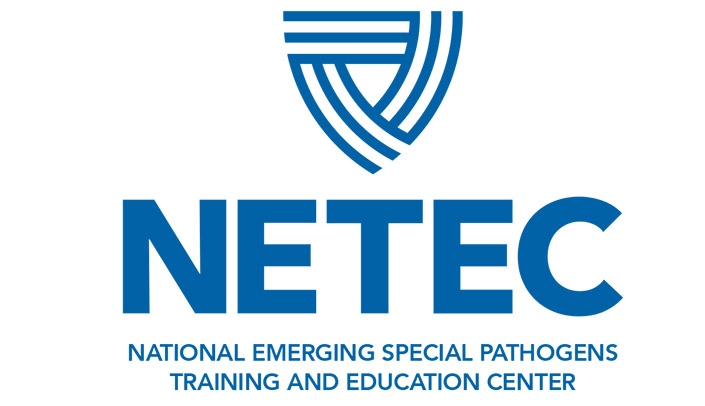NETEC has a new name to reflect a role that has grown beyond the U.S. response to Ebola disease. NETEC is now the National Emerging Special Pathogens Training and Education Center (formerly the National Ebola Training and Education Center).
NETEC is part of the National Special Pathogen System, which just received $100 million from the U.S. Department of Health and Human Services to aid health care systems in preparing for a surge in COVID-19 patients.
“We cannot beat the COVID-19 pandemic without getting America’s health care workers the training and resources they need to respond to this novel threat,” HHS Secretary Alex Azar said in a statement.
Since its founding in 2015 after the Ebola epidemic, NETEC has worked to increase the capability of public health and health care systems to safely and effectively manage individuals with suspected and confirmed special pathogens.
“NETEC’s new name doesn’t change its mission but reflects the work we’ve been doing to help ensure readiness at health care facilities across the country for emerging special pathogens, such as COVID-19,” said John Lowe, Ph.D., UNMC assistant vice chancellor of Interprofessional Health Security Training & Education. He serves as UNMC’s principal investigator for NETEC.
NETEC offers webinars, videos, workshops, readiness consultations, technical assistance, and an online training repository that includes COVID-19 training materials. NETEC also leads a special pathogen research network capable of conducting multi-site, rapid response clinical research which has initiated multiple COVID-19 clinical studies.
NETEC is made up of faculty and staff from Emory University, the University of Nebraska Medical Center/Nebraska Medicine and the New York Health and Hospitals Corporation, Bellevue Hospital Center. All three health care institutions safely and successfully treated patients with Ebola and have worked since then to share knowledge with other health care facilities and public health jurisdictions.
NETEC is funded by the Assistant Secretary for Preparedness and Response and the Centers for Disease Control and Prevention.
